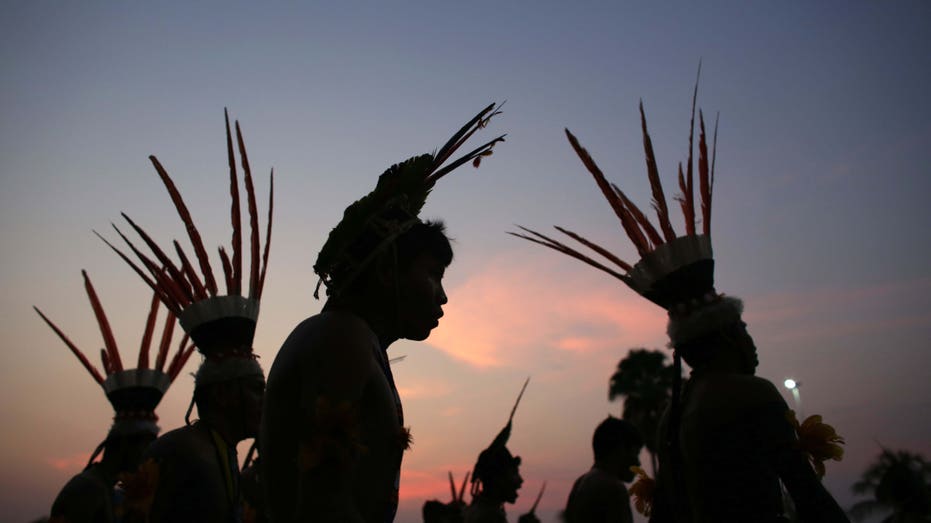Biden Interior Dept puts together handbook to apply 'indigenous knowledge' into agency practices
Officials at the Department of the Interior are pushing to finalize a new "implementation handbook" to guide agency decision makers on how to "apply indigenous knowledge" in their day-to-day work.
The notion of "indigenous knowledge" puts forward that Native groups possess an understanding about the natural world that others do not, due to their ethnic background.
The Interior Department's new handbook supplements a Departmental Manual chapter added last year, entitled "Departmental Responsibilities for Consideration and Inclusion of Indigenous Knowledge in Departmental Actions and Scientific Research, 301 DM 7."
The aim of the new chapter in the agency-wide manual is to "equitably promote the inclusion of indigenous knowledge," but this new supplemental handbook lays out methods for "applying" indigenous knowledge into departmental practices, such as scientific research, environmental compliance work, community resiliency and more.
"This Handbook is not a step-by-step guide," a draft version of the handbook states. "Instead, it includes context, approaches, and ways of engaging along with references to numerous existing resources where employees can learn more about a specific topic. The goal is for employees to have a foundation of knowledge to draw upon to create individualized processes as each situation arises in a respectful, equitable, and lasting way."
One approach laid out in the handbook instructs employees to seek out indigenous "knowledge holders" to supplement their scientific research, including ensuring that there is enough project time allocated to adequately consider indigenous knowledge and compensating any "knowledge holders" for their participation. The guide also implores hiring mangers to consider employing these indigenous knowledge experts.
When it comes to scientific research, some laws require the consideration of scientific information, methods and practices. However, the handbook points out that in some cases these statutes allow the inclusion of indigenous knowledge.
"In these cases," the handbook posits, "Bureaus and Offices should include [indigenous knowledge] as an aspect of best available science when it is generally considered authoritative by the Indigenous Peoples who possess it."
The nearly 150-page handbook includes a litany of other "approaches" to applying indigenous knowledge into the agency's practices, including how to create "an ethical space to receive indigenous knowledge" and information about how to shield "sensitive" indigenous knowledge from public disclosure laws.
"President Biden came into office loudly stressing scientific integrity and creating new rules to supposedly ensure government scientific findings were never 'distorted or influenced by political considerations.' No matter how well-intentioned, elevating indigenous knowledge to being on a par with results obtained through rigorous application of the scientific method opens a Pandora’s box whereby desired results, even if at odds with reality, can be imposed to serve political ends," Michael Chamberlain, director of the conservative nonprofit Protect The Public's Trust, told Fox News Digital.
Chamberlain and his nonprofit dug into how the Biden administration has implemented indigenous knowledge across the federal government, including through the use of public disclosure laws.
"We’ve already seen [indigenous knowledge] in action as the Department of the Interior elevated indigenous knowledge that supported their position over indigenous knowledge that didn’t in canceling oil and gas leases in Alaska," Chamberlain pointed out. "The fact that the administration explored ways to exempt indigenous knowledge from FOIA adds to the potential for misuse."
Officials from the Department of the Interior declined to comment on the record for this story.
In 2022, the Biden administration's Office of Science and Technology Policy unveiled federal guidance on utilizing indigenous knowledge across various sectors of the government. The guidance was also accompanied by an "implementation memorandum," both of which the White House said, work to "value and, as appropriate, respectfully include Indigenous Knowledge" throughout government practices in order to "make the best scientific and policy decisions possible."
From the sidelines of the 29th Conference of the Parties (COP29) in Baku, the Interior Department's Acting Deputy Secretary Laura Daniel-Davis highlighted the agency's commitment to incorporating indigenous knowledge and pointed out that the agency will be conducting consultations with tribal leaders and other indigenous knowledge holders in December to help finish fleshing out the details of the handbook before it is formally released.
President-elect Trump nominated North Dakota Republican Gov. Doug Burgum to be the next head of the U.S. Interior Department, which manages public lands and minerals, national parks, wildlife refuges and any federal responsibilities to recognized Native American tribes across the country.

